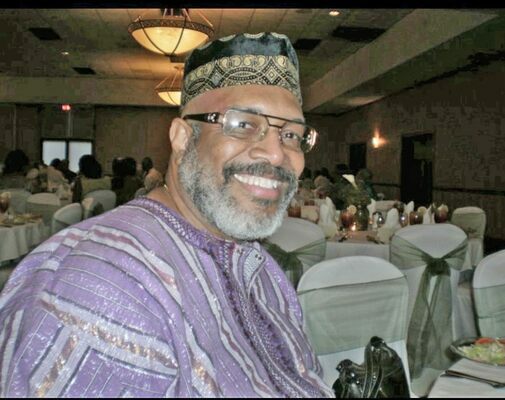About White Supremacy
 Burnett W. “Kwadwo” Gallman, Jr., M.D.
Burnett W. “Kwadwo” Gallman, Jr., M.D.
By
If all the white people on earth were to suddenly disappear, white supremacy would continue to exist.
Why is this so? Because the educational systems and socialization processes in the world have been based on the cultural chauvinism and ethnocentrism of European, Australian and American (white) people for almost 1000 years (40 generations). We have been taught to value their physical appearance (hence colorism and “good hair”), we celebrate their ancestors (hence many of our “holidays”) and we are devoted to their interpretation of our original belief system and philosophical grounding, which they renamed “religion.”
The systems of enslavement and colonialism that were imposed on Afrikan people all over the world brought with them miseducation (if there was education at all). We were taught that everything good, pure and genius had its origins in Europe and European or American thought. So now, too many AUSA (Afrikans from the United States of America) see anything European as proper and normal. They also see things that are Afrikan as “less than,” satanic, demonic and inferior.
We have previously discussed the word, “classical.” We have been subconsciously conditioned to think of Europe when we have that word, whether it refers to music, literature or, frankly, anything. We also associate the words “standard,” “normal,” and “regular” with whiteness. Just look at the dictionary definitions of the words “white” and “black.”
My friend and teacher, the late Dr. Asa G. Hilliard frequently said Black people were out of our minds trying to get into someone else’s mind. Just adhering to a standard of beauty that does not include us is crazy to me. Being critical of lush fleshy lips, prominent wide noses, dark skin and tightly curled (“kinky”) hair when these characteristics define most of us could only be described as sick. If we define the opposite of us as beauty, what are we saying about ourselves?
I will go out on a limb and say, for the most part, Black women have continued to value those Afrikan characteristics in Black men and, brothers, we should show them love and honor them. On the other hand, too many Black men preferentially seek out sisters with white adjacent appearances (or they seek out only white women). I realize this conversation can get “sticky” or complicated because there are many women, some in my own family, who have white-adjacent appearances through no fault of their own. What I’m referring to is those brothers who demean and scorn sisters with Afrikan features while extolling the virtues of light skin, straight hair and white facial features. I’m reminded of a lecture by the late brilliant psychologist, Dr. Amos Wilson, who was responding to a brother who was criticizing Black women for straightening their hair and using skin bleaching cream. The brother said that those women were trying to attract white men. Dr. Wilson responded to the brother that perhaps these women were trying to attract the “white man” in him.
We have been so indoctrinated or brainwashed that we will continue to practice the cultural habits, historical misinformation, and political systems we have been taught even if white people no longer existed. Why is this? It is not just because of our brainwashed state of mind but also because we don’t know any other way to think or believe.
The miseducation has been so effective that all knowledge of the systems our Afrikan Ancestors created was nonexistent. Although our Ancestors’ systems were effective, we simply didn’t know about them, and we still don’t.
How do we combat this state of affairs? I don’t claim to have all (or even most of) the answers but there is one answer of which I am sure. We have to, and absolutely need to, study and learn our true history. Not the history given to us by people who hated us and had no respect from us. That information is “out there” and is available. I would be happy to share what little information I’ve learned from my teachers.
Food for thought.
Please support The Community Times by subscribing today!
You may also like:





